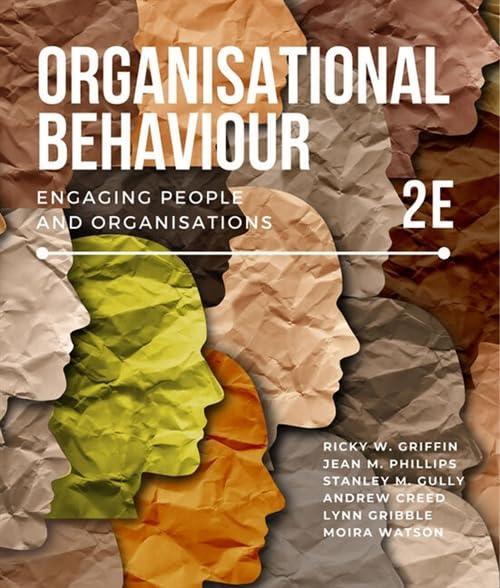In organisations, occasionally the best intentions go horribly wrong. While all of these tools help us to
Question:
In organisations, occasionally the best intentions go horribly wrong. While all of these tools help us to understand why someone might behave in a certain manner or even how they prefer to interact, they are neither diagnostic nor prescriptive. They are descriptive. Labelling someone – that is, putting a ‘category’ under their name or referring to someone based on type – is not an appropriate use of the tools. Think about the impact of hearing someone imply that you behaved in a certain way ‘because you are introverted’, or due to any other trait or preference. As a student studying OB, it is important to recognise that these labels and tools can cause harm if misused. The intention behind them is to enable understanding and shared meaning. While these tools are useful for team development discussions or team-building activities, or even for self-exploration as a means to plan and assist with development, if used incorrectly they can lead to inappropriate labelling or at worst segregation. It is also important to recognise these tests are not created by psychologists and do not cater for neurodiverse understanding. Terms such as shy or anxious are imprecise clinical terms and are not general descriptors. Further, being introverted may mean being reserved or quiet but does not mean you cannot socialise or work well with others. The tools are not problems in themselves, but people must use them ethically.
Question
What can a manager do to help their team use these tools ethically?
Step by Step Answer:

Organisational Behaviour Engaging People And Organisations
ISBN: 272389
2nd Edition
Authors: Ricky W. Griffin, Jean M. Phillips, Stanley M. Gully, Andrew Creed, Lynn Gribble, Moira Watson





